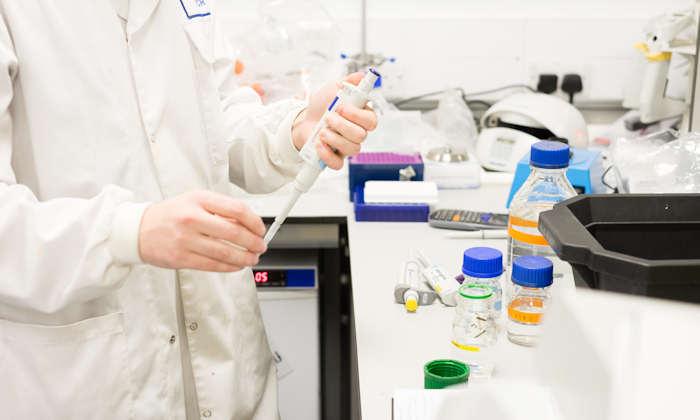Scientists reveal the ‘dark side’ of cancer guide
11 Jul 2016
Good indicator of cancer prognosis turned on its head by new research

A molecule which, for the last 20 years has been believed to be an indicator of good prognosis in tumours has been shown to have a dark side by new research from The Universities of Manchester, Athens and collaborators.
The molecule, known as p21, is often found in association with a so-called ‘master tumour-suppressor’ p53. This has traditionally given doctors an indication that there is a good prognosis for cancer – the presence of p21 indicating that the p53 tumour suppressor will lead to a less aggressive tumour.
However, the new study has presented evidence that turns this assumption on its head. Scientists at the Manchester Cancer Research Centre and their international collaborators have shown that in tumours where the p53 molecule is deficient, p21 dramatically increases the ability of tumours to grow and spread throughout the body.
Professor Paul Townsend, one of the lead authors, along with senior author, Professor Vassilis Gorgoulis, Honorary Professor in Manchester, and Professor-Director, University of Athens, said: “Years ago, being exposed to a lot of sunshine was thought to be one of the best ways of being healthy before we realised the harmful effects of too much could have.
“This protein has a similar effect. When the activity of wild type p53 is lost, excess production of p21 is far from a good thing. This protein which was previously thought benign turns out to have a dark side.”
The new findings open up the possibility of treatments being developed which counter p21, an avenue of research which has not been previously explored.
Research was carried out at The University of Manchester, the University of Athens with contributing authors also from the UK, Spain, the Czech Republic, Sweden, USA, Denmark and Switzerland.
Research beacon: Cancer
Cancer is one of The University of Manchester’s research beacons - examples of pioneering discoveries, interdisciplinary collaboration and cross-sector partnerships that are tackling some of the biggest questions facing the planet.
